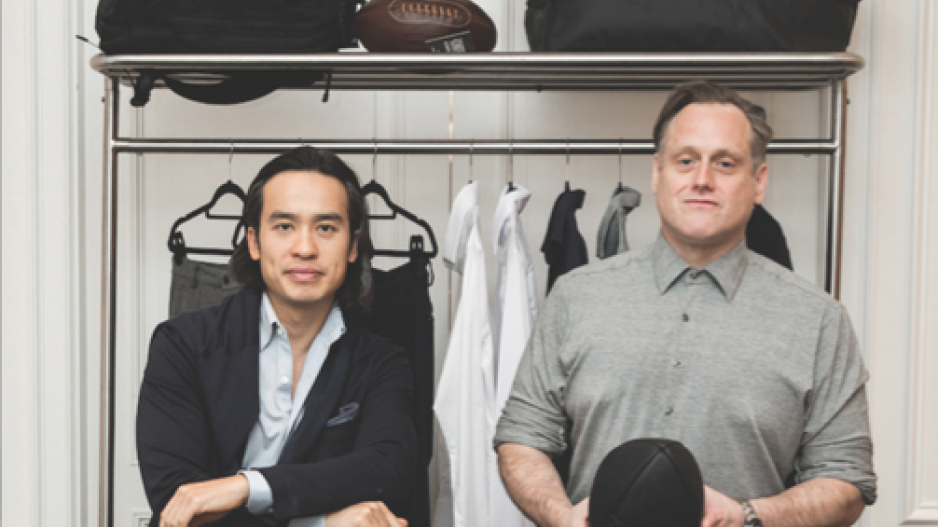The pace of change in the fashion world is mind-boggling.
Online shopping giant Amazon (Nasdaq:AMZN) recently launched its own clothing line while retail malls across North America are closing at an alarming rate.
In downtown Vancouver, big chain stores like Forever 21 are failing to stay open while smaller, locally run bricks-and-mortar shops are being forced out of the city’s core by rising lease costs.
Meanwhile, social media apps such as Instagram have become powerful drivers of fashion trends, shoving more traditional means of exposure from the spotlight.
It’s an unpredictable time to launch a clothing line, but Vancouver-based fashion brand Aedelhard, the brainchild of former Kit and Ace CEO Darrell Kopke, is hoping a unique spin on formal menswear and a full embrace of artificial intelligence (AI) will help it succeed at a time of disruption within the industry.
Kopke’s Aedelhard (stylized as Ædelhard) is a joint venture with Toronto tailor Michael Nguyen, who has fitted custom suits for celebrities such as Drake, LeBron James and the TV show Suits. Kopke has taken his love for rugby and combined it with Nguyen’s experience with the unique demands of fitting the bodies of professional athletes. Nguyen, who is also the official tailor for Toronto’s three professional sports teams (Toronto FC, the Raptors and the Maple Leafs), said the initial idea for Aedelhard’s stretch suit came from that city’s National Hockey League players.
“They fly private, and they don’t want to wear their clothing [suits] on the plane because they’re not that comfortable,” Nguyen said.
Aedelhard’s suits, however, are designed to allow for room to grow, he said.
“One of the disadvantages to wearing more tailored clothing is historically that you put on weight, so you have to get your suit altered…. With this clothing you can go up 10 or 15 pounds and not have any issues. And we find a lot of high-performance athletes and high-performance men are fluctuating in their body weight.”
The stretch suit is made with knitted fabric instead of being woven, and the brand uses the same fabrics that rugby players wear on the field.
Nguyen, who’s been tinkering with the idea for the past 10 years, said the idea is to offer the flexibility of sports clothing in a tailored suit – or, in his own words: “The goal is to make the world’s most comfortable suit.”
Kopke “battled tested” one suit by doing a full workout in it – including squats, bench press and kickboxing – to make sure the clothing could withstand punishment. The company has no immediate plans to open a bricks-and-mortar store. Instead it is developing innovative ways to promote the brand and creating a mobile app with proprietary style and sizing algorithms that will use the Amazon Machine Learning platform. The app calculates body measurements and assesses optimum sizing for garments or suggests a customized option if necessary.
Kopke, who noted Aedelhard has a few pop-up stores planned, is also in talks with stores like Nordstrom (NYSE:JWN) and Holt Renfrew to carry its clothing.
He said AI-aided fashion will soon become the norm, and the company wants to get ahead of the curve. The “future of customization and personalization,” he said, will be in uploading photos or body-scan data, then basing tailoring and style decisions on that data.
The more people interact with clothing technology, the better it will get at helping aid in fashion choices, Nguyen said.
“The software can tell you how to wear it … based off other people with your size and your complexion and how they’ve worn it in the past,” he said. “So that’s where the machine learning comes in.”
A recent Vision Critical study in the U.S. estimates that by 2020, generation Z (those born between 1996 and 2010) will make up about 40% of all consumers in the country.
“I think this is a generational conversation as well, because the millennials, their spending is still increasing, and they are demanding personalization and customization,” Kopke said. “And my kids’ generation, generation Z, they don’t know anything else, so this is the future.” •




